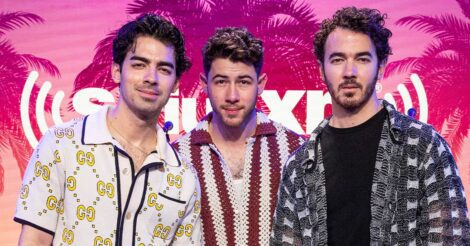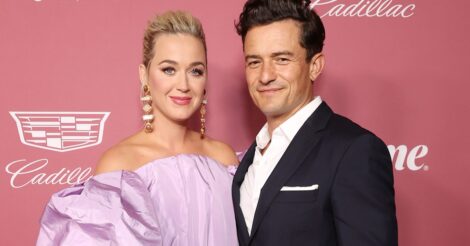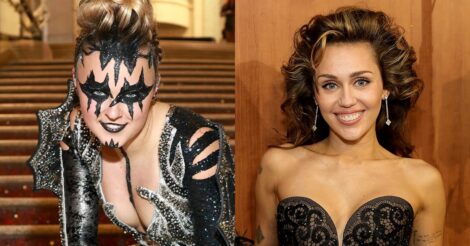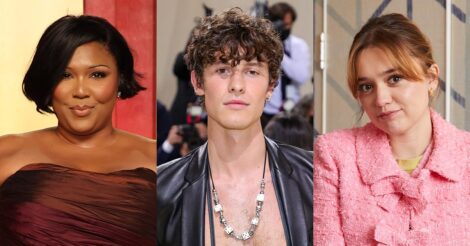
When the NFL announced Kendrick Lamar as the Super Bowl halftime show headliner, reactions were split. Critics doubted he was the right fit—too political, too lyrically dense, too far from the usual pop spectacle that halftime shows thrive on. Some even called for Lil Wayne, New Orleans’ hometown hero, arguing he better represented the energy of the city hosting Super Bowl LIX.
Lamar’s fans had concerns of their own. Would the corporate stage water down his artistry? Could he stay true to his message while delivering a performance for millions? It felt like an impossible balancing act: giving the masses the grand spectacle they craved while delivering something meaningful for those who cherish his deeply layered storytelling.
But if anyone could walk that line, it was Kendrick Lamar. His genius has always been his ability to blend mass appeal with sharp, uncompromising commentary. On Sunday, he did just that, delivering a halftime show that was unlike anything seen before. It wasn’t about nostalgia, nor was it a feel-good singalong. It was a performance that demanded attention, pushed boundaries, and made a statement.
Lamar wasted no time setting the tone. “The revolution ‘bout to be televised,” he declared as the show began. “You picked the right time, but the wrong guy.” From the jump, this wasn’t going to be business as usual.
The performance opened with Samuel L. Jackson in full Uncle Sam attire, dramatically announcing: “This is the great American game.” He represented the traditional halftime show expectations—flash, patriotism, spectacle. But then the camera cut to Lamar, crouched in darkness, rapidly spitting lines from a 2024 verse that didn’t even make it onto GNX. Instead of launching into a universally known hit, he went for something raw and unexpected.
As he moved into “Squabble Up,” Jackson’s Uncle Sam returned, this time unimpressed. “Too loud, too reckless, too ghetto,” he scoffed, echoing critiques that Lamar has faced throughout his career. “Mr. Lamar, do you really know how to play the game?”
Lamar’s response? He didn’t just play the game—he rewrote the rules.
Rather than leaning on collaborations with Beyoncé or Taylor Swift—both of whom were in the stadium—Lamar mostly pulled from GNX, even the deep cuts. He delivered an a cappella version of “man at the garden” alongside a crew of finger-snapping, beatboxing friends, mimicking a high school freestyle session. Then, he shifted into the introspective “Peekaboo.”
These choices may have alienated casual viewers, but Lamar had a plan to bridge the gap.
Enter his dancers. Over 80 performers, dressed in red, white, and blue, moved in formations that at times resembled an American flag, Compton street crews, HBCU step teams, and even the eerie doppelgängers from Us. Their movement was relentless—mosh pits, military-like marches, rally-style protests—all reflecting America’s chaotic beauty.
Leading up to the show, one question loomed: Would Lamar perform “Not Like Us,” his scathing diss track aimed at Drake? The track had already become a cultural phenomenon, winning him five Grammys, including Record and Song of the Year. But legal battles made its inclusion uncertain.
Midway through, Lamar teased the possibility: “I want to perform their favorite song, but you know they love to sue.” Instead, he transitioned into a sultry set with SZA, prompting Jackson’s Uncle Sam to approve: “Nice and calm.” It seemed, for a moment, that Lamar had chosen to avoid controversy.
But Lamar isn’t one to back down.
He launched into “Not Like Us” with a new intro: “40 acres and a mule, this is bigger than the music / They tried to rig the game, but you can’t fake influence.” The crowd roared. It wasn’t The Pop Out—his epic Inglewood concert where he performed the track five times in a row—but the Superdome crowd still erupted for the line: “Tryna strike a chord and it’s probably A minor.”
Lamar had another ace up his sleeve. Looking straight into the camera, he smirked while mentioning Drake’s name—a moment instantly turned into a meme. Then, in a twist no one saw coming, Serena Williams took the stage, crip-walking to the song’s chorus. It was a mic-drop moment: Williams, a Compton legend like Lamar, had been rumored to have history with Drake. After the show, she laughed about it on Twitter: “Man, I did not crip walk like that at Wimbledon—I would have been FINED!”
Lamar closed with his recent single “TV Off,” a song that felt tailor-made for this moment: “Walk in New Orleans with the etiquette of L.A.” It was a reminder that he is, and always has been, a shape-shifter. He adapted from the blog era to mainstream stardom, from To Pimp a Butterfly’s political depth to DAMN.’s chart-topping singles, and now, to the fast-paced world of TikTok virality.
“TV Off” also carried a deeper message. As the show ended, Lamar urged viewers to switch off their screens—not just to be passive consumers, but to actively shape the world around them.
Kendrick Lamar’s Super Bowl performance was bold, unconventional, and impossible to ignore. Some were confused. Others were inspired. But one thing was clear: he didn’t just deliver a halftime show—he redefined what one could be. Maybe, in his own words, he really does deserve it all.









